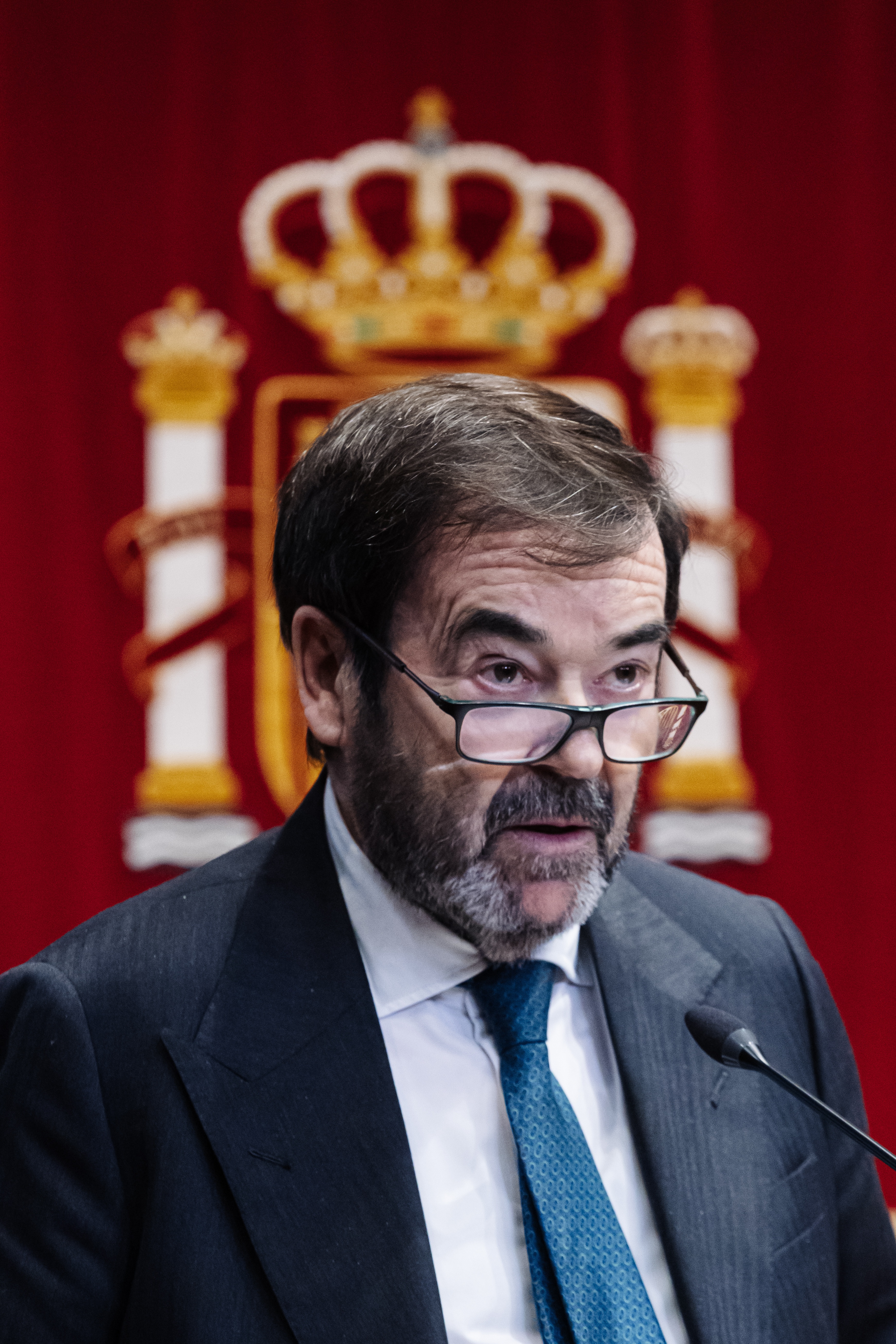The interim president of Spain's General Council of the Judiciary (CGPJ) has strongly condemned the amnesty legislation. Last week, Vicente Guilarte voted neither for nor against the report approved by the CGPJ on the law to grant an amnesty to Catalan pro-independence prosecutions. Instead, he submitted a null vote, and now, four days later, he has explained at length his reasons, couched within his strong opposition to the amnesty. His main argument is that an amnesty "is not something that you can grant in exchange for benefits", as this "distorts its nature as a gracious political gesture". The acting head of Spain's organ of judicial governance asserts that an amnesty is a "measure of grace" that is granted "unilaterally" by the legislative power and that, therefore, "it cannot be arbitrated in exchange for an onerous compensatory measure". In addition, he rebukes the "surprising silence" of the legislation's "pharaonic" statement of justifications regarding the "contractual precedent" which is the "decisive" cause of the amnesty. He is referring to the agreement between the Socialists (PSOE) and Together for Catalonia (Junts) for the investiture of Pedro Sánchez.
And this is where the metaphor comes in: "You can donate a kidney for free, but not in return for a price." "An amnesty cannot be a synallagmatic [bilateral] bargaining chip for the achievement of a parliamentary majority for the investiture, since that involves turning the measure of grace, by definition unilateral and free, into something bilateral and onerous", he proclaims. Therefore, he considers that the legislation has "political compensatory measures of great importance to those eligible for the amnesty" and defends that, as this approach was not discussed "either in one report or the other" (referring to the two CGPJ opinions, prepared respectively by the conservative Wenceslao Olea and by the progressive Mar Cabrejas), he opted for a null vote. Both opinions "disdained" a precedent which, in his opinion, "should have been their starting point".
In his text, Guilarte also maintains that known amnesties (he mentions, for example, that of Spain in 1977 and that of Georgia in 2012) are based on cases that are "gratuitous" in the sense that they "determine a provision/prerogative to be activated by the legislative power", but never by those receiving the amnesty, who are "limited to gratefully accepting, although it seems that this is not the case either, the extinction of the criminal action graciously granted by their benefactor". This leads the president of the CGPJ to conclude that "there are no precedents, either in Spain or in the rest of the nations that have agreed on similar measures of grace, where the amnesty has been inserted into a synallagmatic [bilateral] transaction, with mutual benefits.”
With regard to this explanation, Vicente Guilarte argues that his intention was to "offer a neutral position" because he considers that "the consideration of constitutionality undoubtedly has strong political connotations" and emphasizes that it is "prudent" to maintain a "certain neutrality" because the judiciary "must refrain from intervening in political matters". In addition, faced with the preparation of two reports of opposite signs, he maintains that if the examinations "had been limited to the analysis of [the legislation's] articulation, without entering into the debate on its constitutionality", the members of the Council would have succeeded in approving a single report, since it would have obeyed a "legal logic" on which "practically everyone" would have "agreed". "The polarity that besets us has prevented it", he regrets.
Amnesty "did not appear" in PSOE manifesto
Vicente Guilarte goes a little further and expresses his regret that the purpose of the "political and convivial pacification" of Catalonia and the commitment to propitiate an amnesty "were never previously outlined in the election manifesto" of the PSOE. "Their need arises from the election result and this was explicitly explained, with illuminating clarity, by the Spanish prime minister", he recalls. Despite these considerations, and at the risk of seeming contradictory, Guilarte also points out that he is "aware" that the doctrine of the Constitutional Court "has always been reluctant to pronounce on the intentions of the legislator that are not made explicit in the normative statements within the laws which have to be constitutionally controlled". However, in this case, he states that "the situation is different" because "there really is an obvious causal link" between the political parties' agreements and the amnesty.
An amnesty for "pacification" of Catalonia would be "legitimated"
In the nine pages of the judge's text, one key argument shines through. Guilarte recognizes that the "causal design of the amnesty" that is reflected in the initial statement of its purposes, which appeals to reconciliation, does "legitimate its configuration as a measure of grace" through which "whoever propitiates it has as its essential objective the pacification of social coexistence in Catalonia". However, the CGPJ president repeatedly states that this is not the real cause of the amnesty.

